5 Foods Rich in Fulvic Acid

These days, most of us try to eat a well-balanced diet. Still, the vast majority of us are not getting enough vegetables, which can leave us lacking in essential nutrients. In fact, nearly 90% of Americans are deficient in one or more minerals needed for good health (1).
Some of the most common deficiencies include magnesium, potassium, calcium, and iodine. Fortunately, a compound called fulvic acid can help restore these vital nutrients to the body, while helping to fight free radicals, balance the gut, and provide electrolytes.
So, what is fulvic acid? Fulvic acid is a nutrient-boosting compound created over a long time by the breakdown of plants, and is found in healthy soils. Fulvic acid contains amino acids, antioxidants, macro and trace minerals, peptides, nucleic acids, and vitamins. Most of these nutrients are in ionic form, meaning they are optimally absorbed and used by the body.
Besides its many nutrients, fulvic mineral’s ions can bind to heavy metals (2) as well as harmful chemicals like herbicides (3). This makes fulvic acid both a powerful nutritional supplement and detoxifier.
Unfortunately, decades of conventional farming methods have resulted in soils depleted of nutrients, including fulvic acid. So, while our fruits and vegetables look the same, they actually have far fewer minerals and phytonutrients than in past generations (4).
That means we have to eat more vegetables than our parents and grandparents did, just to get the same amount of nutrition. Fortunately, fulvic acid is still found in some foods today. Find out how you can get the benefits of fulvic acid by eating these 5 foods rich in fulvic acid to support gut health, energy, immune function, and more.
These 5 Foods Will Give You A Boost of Fulvic Minerals
1. Beets
Root vegetables like beets are excellent sources of fulvic acid since the edible part of the vegetable is grown in the soil. Beets are high in plant nitrates which convert to heart-healthy nitric oxide in the body. They are also an excellent source of antioxidants, vitamins, and fiber.
Beets contain a special compound called betalains, which support healthy blood pressure. Research on beet root shows it supports healthy blood sugar and healthy cholesterol levels too (5).
With root vegetables, it’s advisable to buy organic when possible. Farms that follow organic practices do not use sewage sludge in the soil, synthetic pesticides or synthetic herbicides (6).
Beets are widely available year-round and are affordable. Some people don’t like the taste of beets, so, if you’re not keen on beets, you can get started with other organic root veggies. Some favorites include radishes, turnips, parsnips, potatoes and sweet potatoes.
2. Carrots
Like beets, the edible part of carrots is grown deep in the soil. This means carrots can absorb fulvic acid and minerals directly from the soil as they grow.
Besides being a great source of fulvic minerals and beta carotene (vitamin A), carrots contain antioxidants called carotenoids. These natural pigments promote eye health and may decrease the risk of macular degeneration (7).
Carrots of all colors boast these amazing health benefits, which go far beyond eye health. Animal studies also show a link between eating carrots and healthy cholesterol levels (8).
3. Sauerkraut
Sauerkraut boasts fulvic acid thanks to the cabbage used to make this fermented food favorite. For this reason, kimchi—a traditional spicy Korean dish of fermented vegetables—is also a good source of fulvic acid.
Fermented foods undergo a natural process that causes a growth of safe, beneficial bacteria (probiotics) that have a positive effect on our health. Aside from being rich in minerals and nutrients, fermented foods benefit our gut and digestive system (9).
4. Dark Molasses
Molasses is a thick, syrupy substance made from mature, sun-ripened cane plants and is often used as a sweetener. Sugar cane’s roots can grow 6 feet or more below the surface, absorbing fulvic minerals and nutrients into the cane.
The darker the molasses, the more concentrated the nutrients, and the lower the sugar content. Minerals in dark and blackstrap molasses include:
- Magnesium
- Potassium
- Iron
- Copper
- Calcium
- Selenium
- Manganese
Unlike refined sugar, dark and blackstrap molasses contains essential vitamins and minerals. However, because molasses is still a sweetener, take care to only eat a small amount.
5. Seaweed
You might have tried a seaweed salad at your local Japanese restaurant. Seaweed, also referred to as kelp, is in the Alginate family of sea vegetables, and it’s packed with nutrients, including fulvic acid.
Sea vegetables typically contain:
- Iodine
- Fiber
- Selenium
- Phosphorous
- Magnesium
- Sulfur
In addition to being mineral-rich, research suggests that seaweed may be beneficial for blood sugar and blood pressure levels (10).
Supplement Your Healthy Lifestyle with Fulvic Minerals
No matter how hard we try to eat a balanced diet, it’s almost impossible to know the exact mineral and fulvic acid content in our food. But, if you’re not juicing beets and preparing seaweed salads, don’t panic!
You can ensure you’re getting fulvic acid and all its health benefits by using a fulvic acid supplement to enhance your healthy lifestyle.
Fulvic Minerals+ has fulvic acid sourced from pristine peat bogs in Canada, trace minerals harvested from seaweed, and natural zeolite to support detox. With fulvic and trace minerals, Fulvic Minerals+ can support gut health, give your energy a boost, support the immune system and more.
So, if you’re not a fan of seaweed, beets, or blackstrap molasses, you can still enjoy all the health benefits of fulvic acid. Simply add a dropper of Fulvic Minerals+ into a glass of water, stir, and drink in the taste-free goodness of fulvic acid every day!

